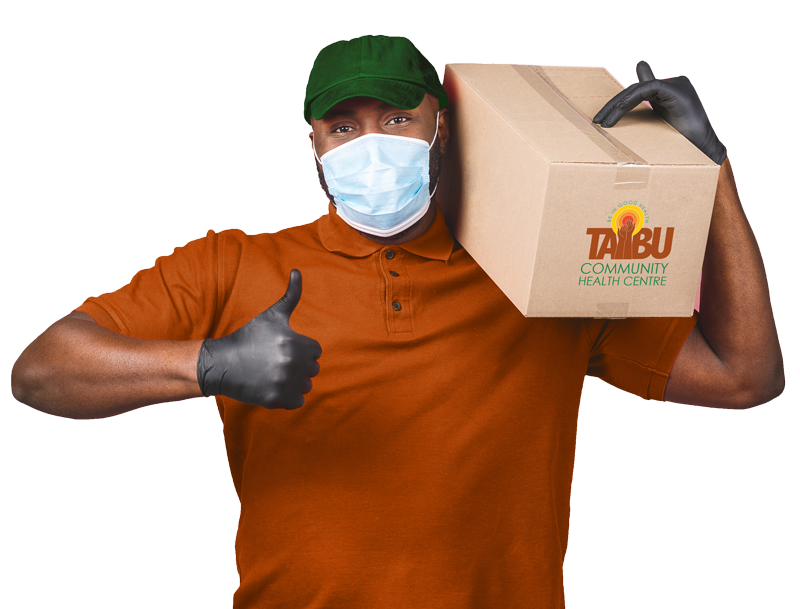What we are doing
in response to COVID-19
At TAIBU, the health and safety of our clients, staff, volunteers, and supporters are of the utmost importance. In continuing to provide critical care services to those in need, we are implementing prudent public health safety measures based on the best advice and recommendations from our public health experts.
We are back to regular hours:
We are back to regular hours:
Mo: 9am – 5pm
Tu: 9am – 8pm
We: 9am – 5pm
Th: 9am – 8pm
Fr: 9am – 5pm
Sa: Closed
Su: Closed
After Hours: please call (416) 644-3536

What you need to know
- Please call ahead
- If you have been exposed or are experiencing symptoms of COVID-19 take an online self-assessment
- TAIBU Community Health Centre does not providing COVID-19 testing
- Support to the clients and families via phone is available
- We are accepting new patients and clients
- We ask that all clients wear a cloth mask upon visiting
We’re taking precautions
We continue to monitor and adapt our procedures based on the situation and
recommendations from Toronto Public Health and the province on a daily basis.
Clean and disinfect
our centre regularly
Permit staff to work from home, where possible
Request staff to stay home
if they have cold or flu symptoms
Request clients to delay all non-urgent appointments
Urge clients to delay their visit if they have cold or flu symptoms
FAQs
COVID-19 cases in Toronto are rising and Black people are disproportionately represented. While Black people represent 9% of the total population in Toronto, we represent nearly a quarter of all new COVID-19 cases.
Toronto Public Health has identified COVID-19 hotspots and many of these locations are in Scarborough neighbourhoods such as Malvern (M1B), Woburn (M1G), and Milliken (M1V). These areas have also had multiple school outbreaks.
People of all ages are getting sick from COVID-19.
Asymptomatic, meaning cases showing no symptoms of COVID-19 make up a significant proportion of COVID-19 cases. However, individuals who are asymptomatic may be able to transmit the virus to others. Getting tested is one of the best ways to protect your loved ones, friends, and entire community from COVID-19.
Myth Buster
COVID-19 infects everyone, regardless or age, gender, or race. While uncommon, young people can have really bad outcomes.
Unlike the flu, COVID-19 currently has no widespread remedy or treatment drugs, and there is currently no vaccine to prevent infection.
Testing only confirms the presence of cases. Testing does not lead to more cases. In other words, the number of cases exists first, then the testing results
People who don’t have any symptoms might still have the virus and masks help prevent transmission. Remember, a person can be asymptomatic.
Kids can definitely catch COVID-19, and serious illness, though uncommon.
According to the WHO (World Health Organization), wearing a cloth or surgical mask is not dangerous and does not cause CO2 poisoning.
You can have COVID-19 and not feel sick. Getting a negative test is the only way to confirm that you do not have the virus.
There have been cases of reinfection around the world, so it is important to follow guidelines and protect yourself and others even after you recover.
While young people can get severely ill and even die from COVID-19, you also need to follow healthcare guidelines in order to prevent others from dying from the disease.
Micronutrients, such as vitamins D and C and zinc, are critical for a well-functioning immune system and play a vital role in promoting health and nutritional well-being. There is currently no guidance on the use of micronutrient supplements as a treatment of COVID-19. (World Health Organization).
More resources
We also offer the following resources that we ourselves trust.
We hope you find something helpful here and will share it with your family, friends and neighbors.
911 for emergency and life threatening situations
311 for customer service and municipal information hotlines
411 for directory assistance (charges apply)
211 for information on community and social services that can help you with life challenges
511 for travel information about provincial highways.
- 211 Toronto, find services by topic, 2-1-1
- City of Toronto COVID -19 Resource Map
- City of Toronto’s COVID-19 ChatBotanswers your questions
- Afactsheet on the COVID-19 Emergency Benefit for people receiving social assistance can be found on the City’s website. The COVID-19 Emergency Benefit is a one-time benefit available for people receiving assistance from Ontario Works or Ontario Disability Support Program who have additional costs related to COVID-19 public health crisis.
- Patient resource for uninsured clients
- Accessing services in Toronto as a person without status. For questions about identification requirements for any service provided by the City of Toronto, call 311. You do not need to provide any personal information when asking for this service. Translate option at the bottom of the City of Toronto website – Translate the information into 51 different languages.
- A resource for non-status women during COVID-19
- A “Housing Support for Tenants” section has been added to the City’s website
- The Province has suspended all eviction-related activity. If a landlord has given an eviction notice tenants should: contact the Province’s Rental Housing Enforcement Unit or call 416-585-7214 or 1-888-772-9277
- Rent Bank: Interest Free Loans
- Centre for Equality Rights in Accommodations CERA has a dedicated webpagefor info on Government and Community Response efforts with a focus on tenant rights.
- Ontario Community Support Associationhelping isolated, low-income seniors and people with disabilities and chronic medical conditions get meals, groceries, medicine and other essentials to stay safe at home. Phone number is 1-877-330-3213.
- Toronto Cares: COVID-19 Grocery Delivery: Grocery hampers delivered by volunteers, usually within 7-10 days for individuals and families. Pay what you can. Both fresh and non-perishable items. Please call 1.807.701.5198.
- Hand Up for Kids: a new grocery delivery service initiative to help community, families, and children in need to get the groceries they need.
- Additional 211food access supports
- The City of Toronto has developed a mental health support strategy to support the mental health needs of residents during the COVID-19 pandemic. Residents can call 211 to access support and information on mental health services is also available on their website.
- Kids Help Phone: Children and youth 18 and under can call Kids Help Phone at 1-800-668-6868, for 24/7 phone and text support.
- Youth Mental Health Resources Free Webinar series: from the Canadian Council for Youth Prosperity. Series, #IMPACTCOVID, will be delivered bi-weekly on Mondays at 1pm (EST). This objective of the project is to provide youth with tips, insights and tools that help them sufficiently navigate the COVID-19 pandemic.
- School Mental Health Ontario: tips and resources to help to support student mental health during the COVID-19 pandemic.
- Non-Crisis Peer Support Line for Youth
- Legal Aid Ontario Clinics Locations
- COVID-19: Updates on the law and legal services
- Legal resources and supportrelating to the COVID-19 situation from the Canadian Civil Liberties Association
- Workers Action Centre
- The ban on being disconnected by your electricity distributor is traditionally in effect until April 30 was recently extended by the Ontario Energy Board until July 31, 2020. For more information, please click on the link.
- The RCTech OUTREACH programprovides low income individuals with affordable ownership of quality renewed computers and ready to use software
- The Toronto Public Library has launched a new initiative where residents that do not have a library card can now access Overdrive, ebooks and audio books using the new instant digital card. These digital cards will expire September 1, 2020. More information on how to access here.
- Safety Supportsto support individuals self-isolating with abusive partners or family
- Accessing Support to support individuals self-isolating with abusive partners or family
- Tips on helping a friend at risk
- Safety planning
- Education materials in a downloadable file formatincluding link to over 40 documents, worksheets and booklets for children and youth: Kr. – Gr. 2, Junior Math, Reading and Comp. for Gr. 3-7.
- Student Aid Canada Covid-19: information on the newly announced Canada Emergency Student Benefits and Canada Student Service Grant
- School Mental Health Ontario: tips and resources to help to support student mental health during the COVID-19 pandemic.
- Speak Up Ontarioresources for individuals and families
- Plan Well

